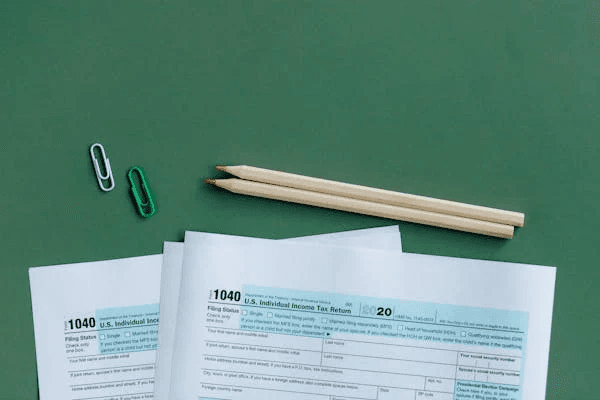Step-By-Step Guide on How to File Taxes for TikTok Shop Sellers Accountant for USA Companies

TikTok is showing no chance of slowing down in its rise to prominence. The platform is no longer simply about viral dances and trending challenges. It is now a growing marketplace filled with opportunities for entrepreneurs. However, it also comes with some burdensome obligations that many people fail to comprehend.
An average US adult spends around 53.8 minutes of their day scrolling TikTok. Sellers are cleverly exploiting the app's unparalleled reach to launch and scale their online ventures. However, few are able to grasp the intricate tax implications that come with viral success.
Filing taxes as an operator of a TikTok Shop demands substantially more effort than merely totaling earnings, given the dizzying complexity of US statutes and the strict need to fully obey each nuanced regulation. This manual aims to guide readers on how to file taxes for TikTok shop sellers and stay on the right side of the Internal Revenue Service despite the challenges of compliance.
Step 1: Identify Your Business Structure
Begin by recognizing your type of entity to understand how your income will be taxed. TikTok Shop owners typically function as:
Sole proprietorship - The simplest designation with no legal divide between owner and business. All transactions appear on the individual's personal return.
Limited liability company (LLC) - Protects while permitting choice in how earnings are taxed—either as a sole proprietorship, partnership, or corporation.
Corporation - Shields from liability with profits reported separately from the owner's pay.
Each type carries different tax implications. Therefore, fully comprehending your operational structure is crucial.
Step 2: Get the Employer Identification Number (EIN)
Do you operate your TikTok Shop as an LLC or corporation? In that case, acquire an EIN from the IRS. This figure identifies your company for tax obligations. Proceed to the IRS website to get this number free of charge.
Step 3: Grasp Complex Sales Tax Obligations

As sellers using TikTok Shop to facilitate transactions, we must appropriately account for applicable sales taxes. Tax rates and jurisdictions vary significantly by location, so diligence is required. There are several key actions to undertake.
First, register with your state's revenue department, empowering the ability to accurately collect and remit owed duties. Nexus designates where a business meaningfully operates. Taxes apply in places economically tied to sales. Annual sales or deal volumes above certain thresholds commonly establish nexus.
Properly tallying taxes involves understanding standardized rates correlating to customer home addresses lying within taxable regions. Collecting sales tax can be complex with a multi-state clientele, but compliance is non-negotiable.
Finally, the necessary returns are filed on mandated schedules, be they monthly, quarterly, or annually, and the withheld levies are submitted to the revenue departments.
Step 4: Record Details About Your Earnings and Expenses
Accurate accounting is important for proper tax filing. You should record all the income that is derived from your TikTok Shop and record any relevant expenses. They will include:
Cost of Goods Sold: The direct expenses connected with manufacturing or obtaining the products offered in the TikTok Shop encompass resources, salaries of laborers who create the goods, and the initial prices charged by providers.
Advertising and Marketing: Promoting the TikTok shop through both paid ads and influencer campaigns aims to raise awareness of the items and drive revenue higher.
Shipping and Packaging: Transporting completed products to customers and wrapping them securely for their journey involves expenditures for boxes, labels, packing materials, and carrier services. These are the spending necessary for successful inventory fulfillment.
Fees: Charges collected by TikTok on each sale and transaction, as well as handling charges from payment gateways where buyers render payment, are deducted from profits.
Wage Payments: You might have to collaborate with creators to develop user-generated videos for your products and promote them organically.
Use accounting software to organize these records with ease and efficiency.
Step 5: Fill Up the Right Tax Forms
The tax forms required for your business depend largely on its structure.
As a sole proprietor selling goods through TikTok Shop, your earnings and expenditures would be documented on Schedule C before transferring the net amount to Form 1040. Then, it would face income tax and the independent tax levied on one's own profits.
If your venture is a single-member LLC, you file the same as a sole trader via Schedule C. However, a multi-member LLC submits a partnership return on Form 1065, then produces a Schedule K-1 for each member detailing their share to list on personal records.
C-corporations have other steps to follow. They must complete Form 1120 to account for revenues and costs. S-corps have to fill out 1120S and circulate a Schedule K-1 among shareholders.
Step 6: Pay Self-Employment Taxes

Those earning income through TikTok Shop are defined as self-employed under tax law. This necessitates paying self-employment taxes, a pairing of Social Security and Medicare taxes calculated on net earnings. At present, the self-employment tax rate totals 15.3% of income from one's commercial endeavors on the platform.
Step 7: Make Estimated Quarterly Payments
While most W-2 workers have duties extracted from every salary and forwarded by the employer to the IRS, people who are self-employed through TikTok Shop sales do not have access to this advantage. Hence, you must pay quarterly expected taxes straight to the IRS. This prerequisite exists if you are anticipated to owe in excess of $1,000 in income tax for the year. To calculate the amount to send, refer to Form 1040-ES and mail in your payments by the quarterly deadlines so that no penalties are accrued.
Step 8: Keep an Eye on the Clock
Another requirement to keep in mind is the timely submission of returns. The deadline is April 15. If you need more time, apply through Form 4868. This permits an extension until October 15. But keep in mind that it only extends the time to file. It does not extend the time to pay any taxes due.
Need Help Filing Taxes for TikTok Shop Seller’s Accountant? Let SamsCashflow Agency Help You Out!

Need experts to assist you in the tax filing process of your TikTok Shop Business? Then, visit https://www.samscashflow.com/#book and book a call with them.